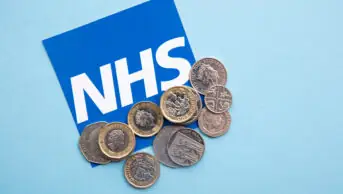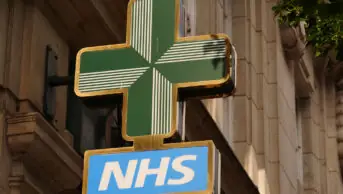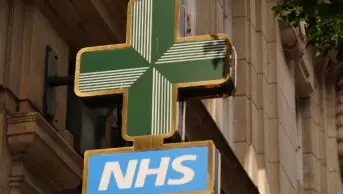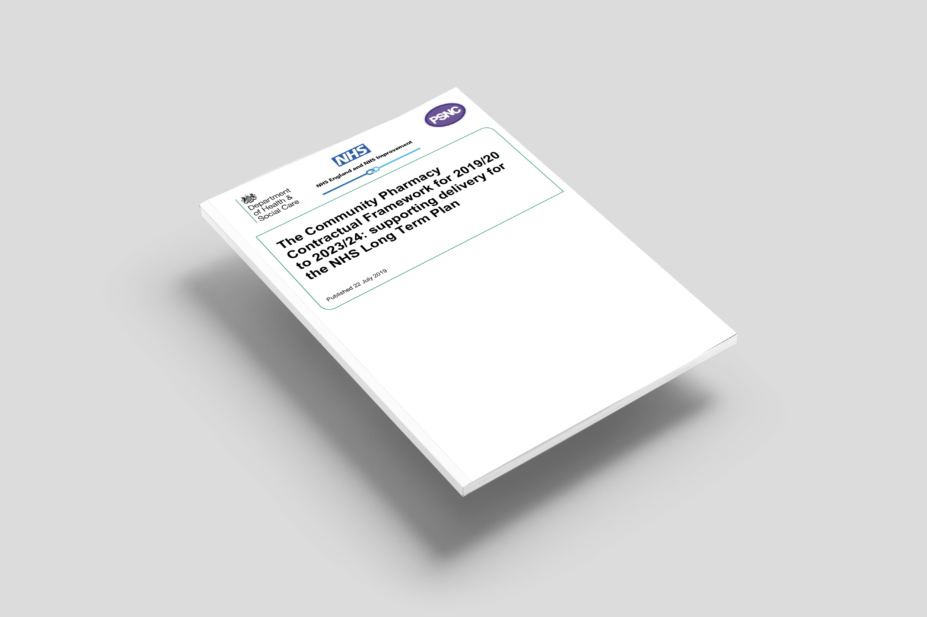
JL / The Pharmaceutical Journal
Community pharmacies in England are set to receive £13bn over the next five years under the latest national contract, with a planned spend of £2.59bn each year.
This represents a freeze in the community pharmacy funding package, with a £2.59bn annual funding pot also agreed during negotiations in 2018.
The community pharmacy framework contract, which was published on 22 July 2019 jointly by the Department of Health and Social Care (DHSC), NHS England and the Pharmaceutical Services Negotiating Committee (PSNC), also revealed that medicines use reviews (MURs) will be phased out over the next two years, with the number of MURs community pharmacies can each carry out to be capped at 250 in 2019/2020 and 100 in 2020/2021.
Instead, so-called “clinical pharmacists” will take on “structured medicines reviews” in primary care networks (PCNs), where the pharmacist will have access to patient records and be able to adjust prescribing.
The new contract also details plans to phase out establishment payments, paid to all pharmacies that dispense a certain number of prescriptions annually, from the £164m paid in 2018/2019 to £123m in 2019/2020, with no funding thereafter.
The £94m currently spent on MURs and the establishment payment funding will be reinvested into new initiatives set out in the contract, including the Community Pharmacist Consultation Service (CPCS), which NHS England says will launch in October 2019.
The CPCS, which will combine the Digital Minor Illness Referral Service and the NHS Urgent Medicine Supply Advanced Service into one service, will see pharmacists receive £14 per consultation. Overall funding for the CPCS will increase from £4m in 2019/2020 to £19m in 2023/2024.
Pharmacists who sign up to the CPCS by 1 December 2019 will receive £900 to help them implement it. Those who sign up to participate in the CPCS by 15 January 2019 will receive a £600 payment.
Pharmacists will also receive £5.35 for each item supplied under the serious shortage protocols, which came into force in July 2019.
The funding breakdown also includes “unallocated funding for future clinical services to include transition payments”, which will include payments for monthly transitional payments to recognise the cost of PCN integration, preparation of serious shortage protocols and the implementation of the falsified medicines directive.
However, the PSNC, which agreed the contract with the DHSC and NHS England following negotiations which began in the spring of 2019, said the exact level of funding for engagement with PCNs was still to be determined following further discussions with the government.
At a briefing on the contract, the PSNC said there were also plans to launch pilot projects in 2019/2020 to implement point-of-care testing in pharmacies to support efforts to tackle antimicrobial resistance, as well as a smoking cessation referrals pilot from secondary care services.
In a series of answers to frequently asked questions published by the PSNC, it said its members did not accept the deal unilaterally.
“Not everyone was in favour of this deal, given the considerable asks that it makes of community pharmacy, but the settlement was carried with the support of more than two-thirds of PSNC members,” one of the answers said. “The deal was felt to be the best scenario, and the vision for service delivery included within it aligns with the sector’s own vision for its future as set out previously in the ‘Community Pharmacy Forward View’.
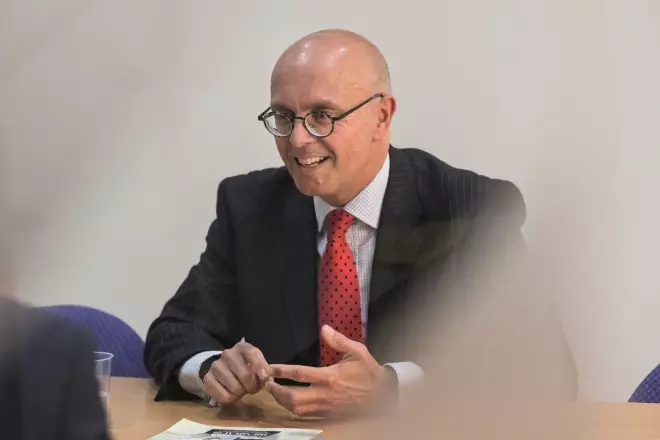
Source: Jeff Gilbert 18
Simon Dukes, chief executive of the PSNC, says a “crucial part” of the community pharmacy contract deal is the agreement to review its allocated funding each autumn
Commenting on the contract, Simon Dukes, chief executive of the PSNC, said: “Over the past four months, the PSNC has put a considerable amount of data [to the Department of Health and Social Care, NHS England and NHS Improvement] to demonstrate the rising cost base of the sector, as well as continually highlighting the value of pharmacy services, in order to try and persuade government to reverse that planned downwards trajectory of pharmacy funding.
“While we have not succeeded in getting an increase in the overall sum, we have secured a commitment from the government to a protected £13bn over five years.”
He added that “a crucial part” of the deal was an agreement “to review the situation on an annual basis each autumn”.
“These built-in reviews will provide real opportunities for us to monitor and consider crucial factors, such as costs, service volumes, pharmacy income and sector stress, and the PSNC will be using this evidence to make the case strongly for further investments in the sector,” he said.
